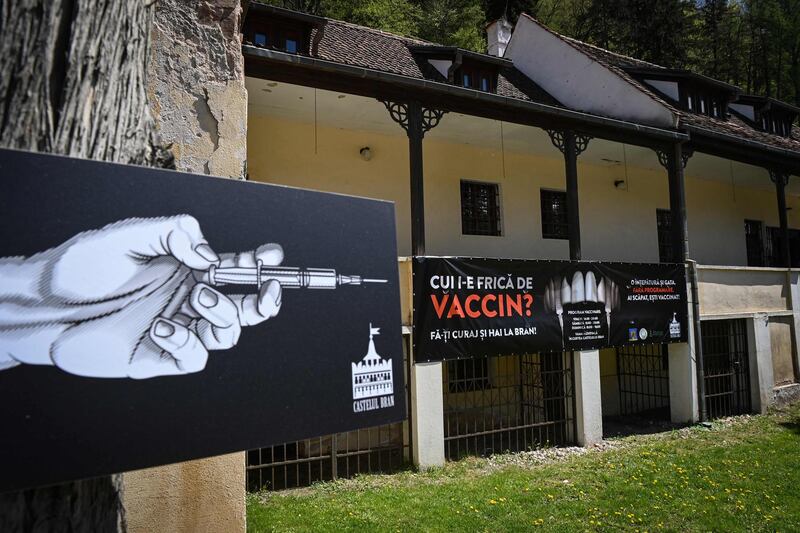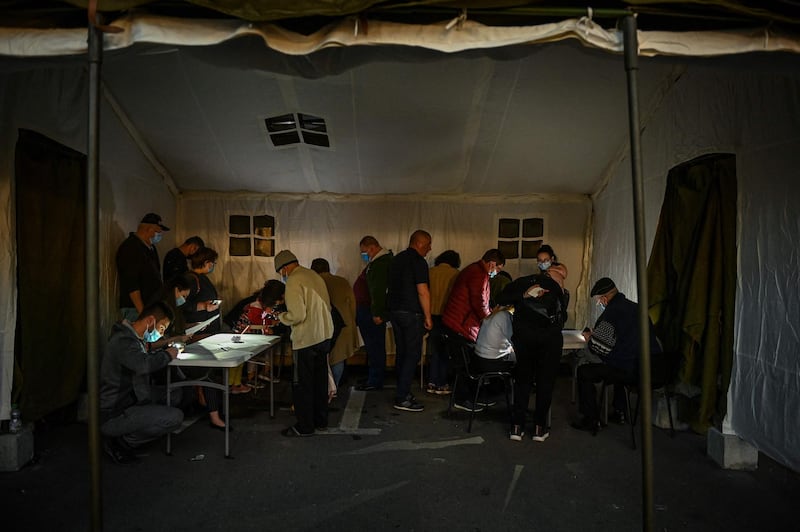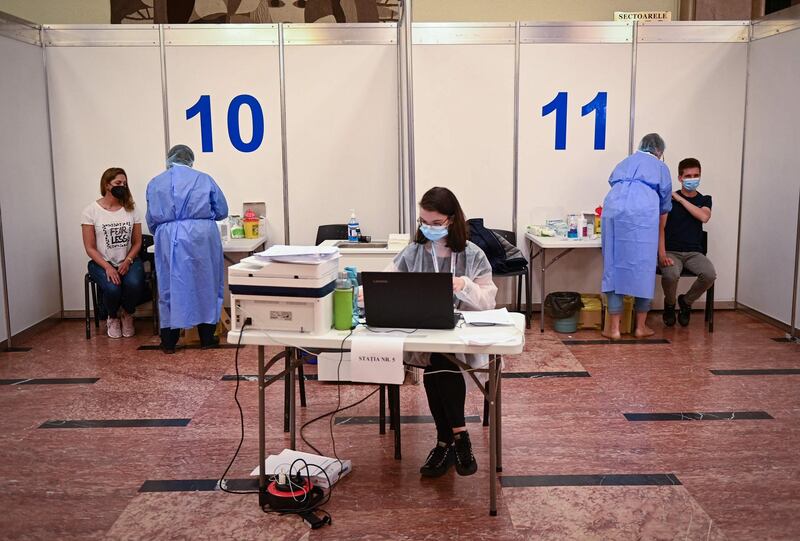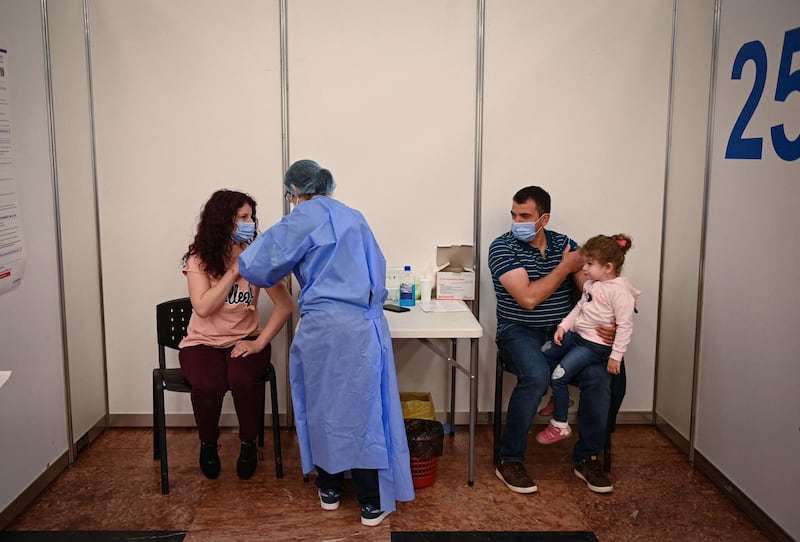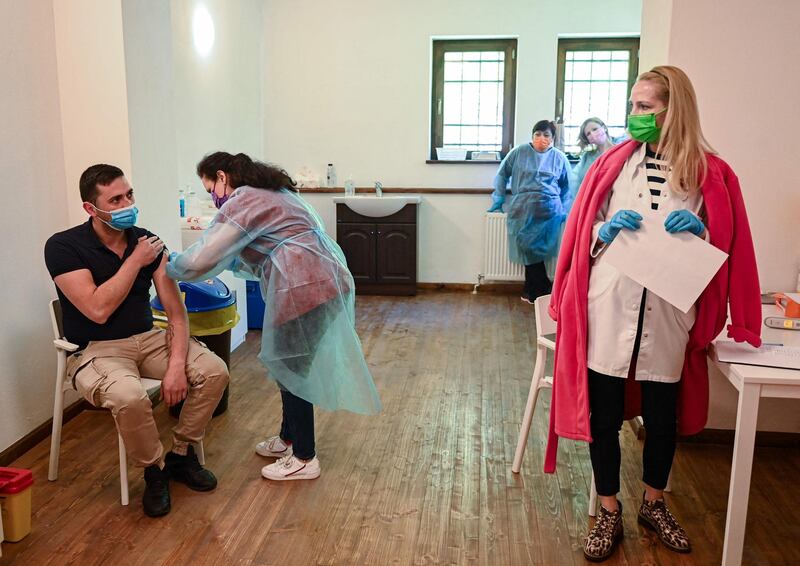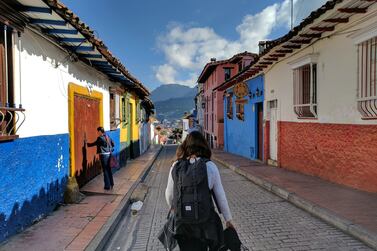Visitors to Romania's forbidding Bran Castle, widely known as the inspiration for the lair of Dracula, were jabbed with needles rather than vampiric fangs this weekend in a coronavirus vaccination drive.
Medics offered free Pfizer shots to everyone who visited the 14th-century castle, the BBC reported.
"I came to visit the castle with my family and when I saw the poster I gathered up my courage and agreed to get the injection," said Liviu Necula, 39, an engineer.
Those who take the jab are handed a certificate hailing their "boldness and responsibility", and promising they will be welcome at the castle "for the coming 100 years" – as well as being offered a free tour of the "torture chamber".
The vaccination campaign will take place every weekend throughout May. Anyone can turn up without an appointment to get a shot, according to Reuters.
Nestled in a misty valley in the Carpathian Mountains, Bran Castle is associated with the 15th-century Romanian prince Vlad Tepes, known as "the Impaler", although he never stayed there.
Dracula author Bram Stoker is believed to have been inspired by Vlad and descriptions of Bran Castle when writing his 1897 novel that helped found the modern vampire genre.
Romania's government has turned to local vaccination drives and 24-hour "marathons" at major venues such as the National Library in Bucharest to get as many citizens as possible immunised.
"These centres are for everyone who wants to get vaccinated but doesn't feel like making an appointment online," said Marius Nasta hospital director Beatrice Mahler.
But she said it would still be difficult to reach people living in the many areas without local doctors.
Almost 3.6 million Romanians of the country's 19 million people have received at least one vaccine dose, with authorities aiming for five million by June.
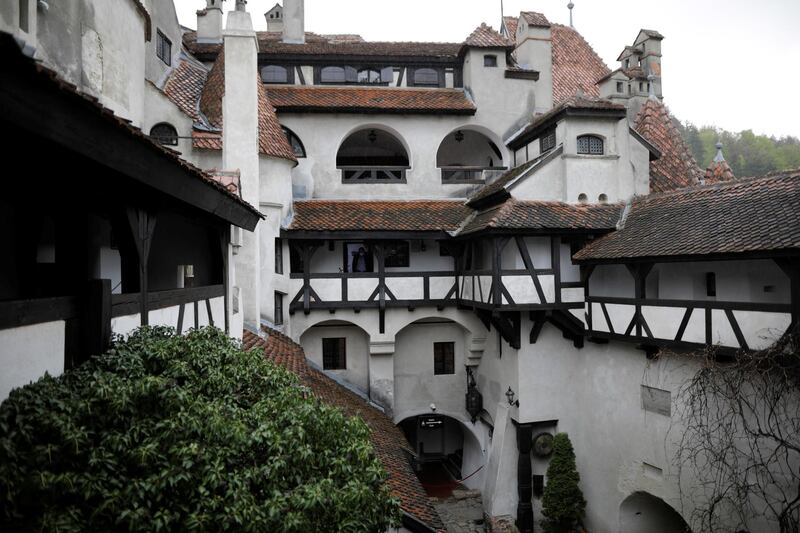
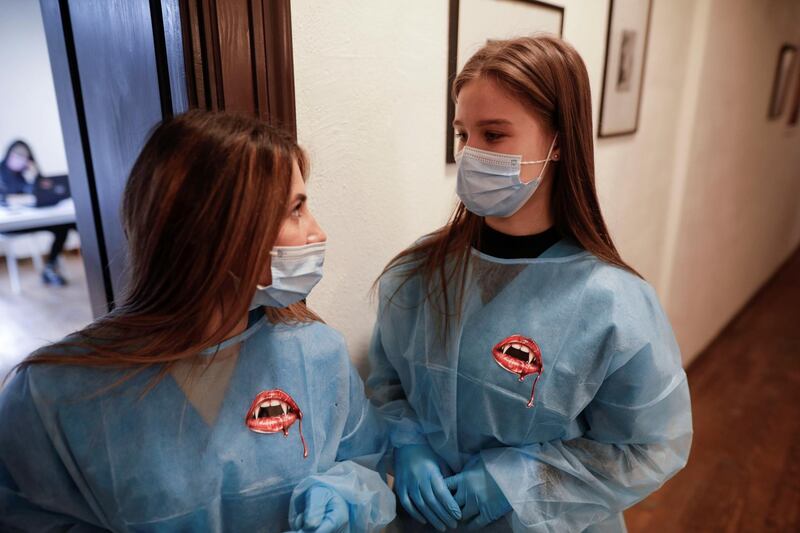
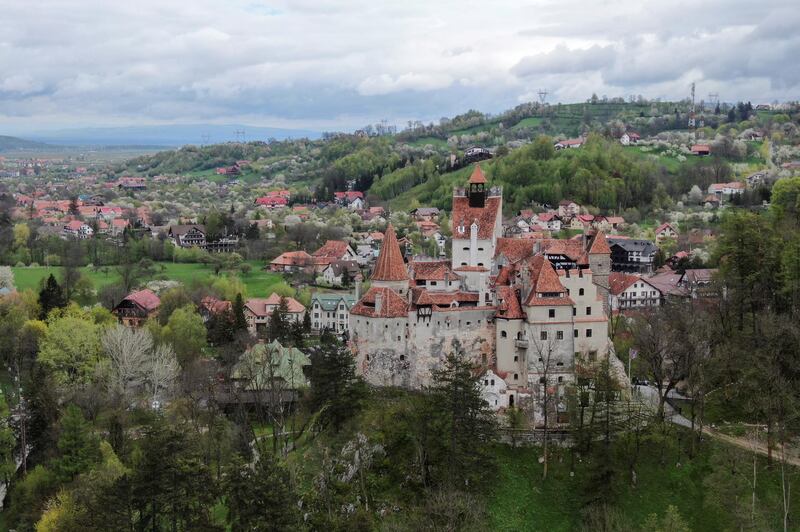
![A banner reading in Romanian 'Who's afraid of [the] vaccine' advertises the vaccination marathon at Bran Castle in Bran village. AFP](https://thenational-the-national-prod.cdn.arcpublishing.com/resizer/v2/L3UDIYGOYYRU4IFWJPDMYJRFYM.jpg?smart=true&auth=d4f87792457f3a9cadd7c07129e614cb93d8e2e31e29399f7071503205ae16a6&width=800&height=551)
